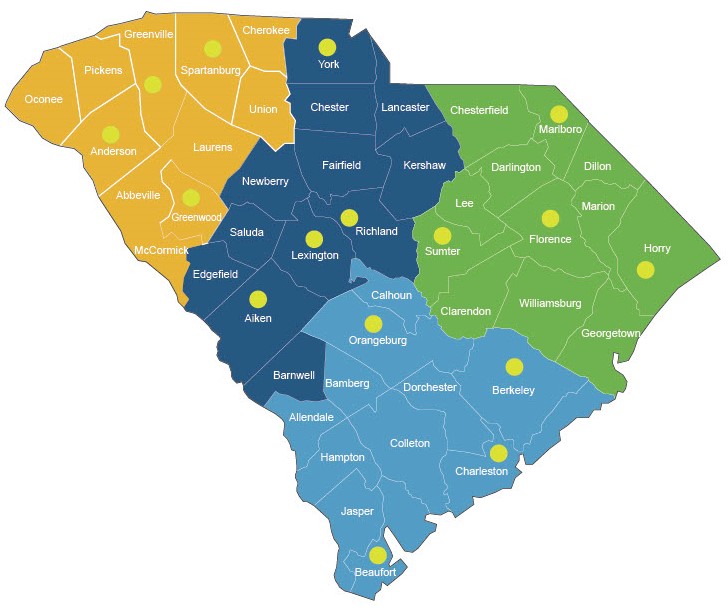With public safety workers often responding to mental health crises in cities and towns, the Municipal Association of SC included in its 2024 Advocacy Initiatives support for greater funding in the state budget for mental health resources. As part of this focus on mental health, the Association hosted a session at its 2024 Annual Meeting covering the services of the SC Department of Mental Health and its 16 mental health centers covering every part of the state.
Association President and Goose Creek Mayor Greg Habib introduced the session, noting that the legislative work opened a larger conversation about resource availability.
“Part of what came out of that discussion was that there are programs and services available that many of us may not know about,” he said. “Untreated mental health issues place a considerable burden on our cities, our emergency services, our local law enforcement.”
The presentation came from SCDMH Deputy Director of Community Mental Health Services Deborah Blalock. The services that Blalock overviewed included its more than 40 satellite clinics, three hospitals, two nursing homes including a veterans’ nursing home, and its Sexually Violent Predator Treatment Program. SCDMH serves about 100,000 patients each year, with operating expenses of $620 million in FY 2024.
Where most states have mental health departments that only direct funds to nonprofit groups, South Carolina’s department provides the services, Blalock said, adding that South Carolina also uses single electronic health records.
“So whether a person pops up in Allendale County or Oconee County, our clinicians can go into that EHR and see the record of the individual if we've ever interfaced with that person previously,” she said. “You can imagine that's a great benefit to us and to law enforcement and all of the counties.”
SC Department of Mental Health Community Health Centers

The SC Department of Mental Health has 16 mental health centers throughout the state.
Blalock reviewed the location and areas served by each of the mental health centers throughout the state, describing it as “the part that’s near and dear to my heart. It’s where the bulk of our services occur.”
She described the SCDMH philosophy of getting the right level of treatment to patients for their level of need. For the general population, this can take the form of prevention efforts in the community, and for those with mild mental health symptoms, this can be immediate access to care. This can advance all the way to those who are a danger to themselves or others, in need of inpatient care.
Prevention efforts for the largest, general population can take many forms, such as in schools or with the caregivers of young children.
“Every mental health center has an infant and early childhood champion that can treat infants [ages] 0 to 3. And you might ask, what on earth does an infant need? They have to thrive,” she said. “So if they don't have a thriving environment with their caregivers, there's going to be a problem down the road. This is really about assisting mothers, in particular, on how to bond with their babies and how to provide a thriving environment.”
Blalock went over many other SCDMH offerings, including crisis intervention team training with law enforcement, the Office of Suicide Prevention, Intensive Community Services, and even the Mobile Crisis Response Team covering all 46 counties in the state. She noted that SCDMH staff had assisted after many disasters and emergencies in the state, from hurricanes and floods to deadly events like the Sofa Super Store fire that claimed the lives of nine firefighters in Charleston in 2007, or the Emmanuel AME Church shooting in 2015 that also killed nine people.
She also called attention to the department’s outreach efforts to remove the stigma of seeking mental health help.
“A lot of people don't seek care because they're embarrassed to seek care, or they think they're going to get fired for seeking care, so we do a lot of anti-stigma work,” she said. “Parades, health fairs, back-to-school efforts, everything you can think of. If you want us there, you just call your mental health center and they will be there.”
Learn more about the services of the SC Department of Mental Health online, 2024 Annual Meeting presentations, including Blalock’s presentation covering SCDMH topics and giving information on all the mental health centers.
